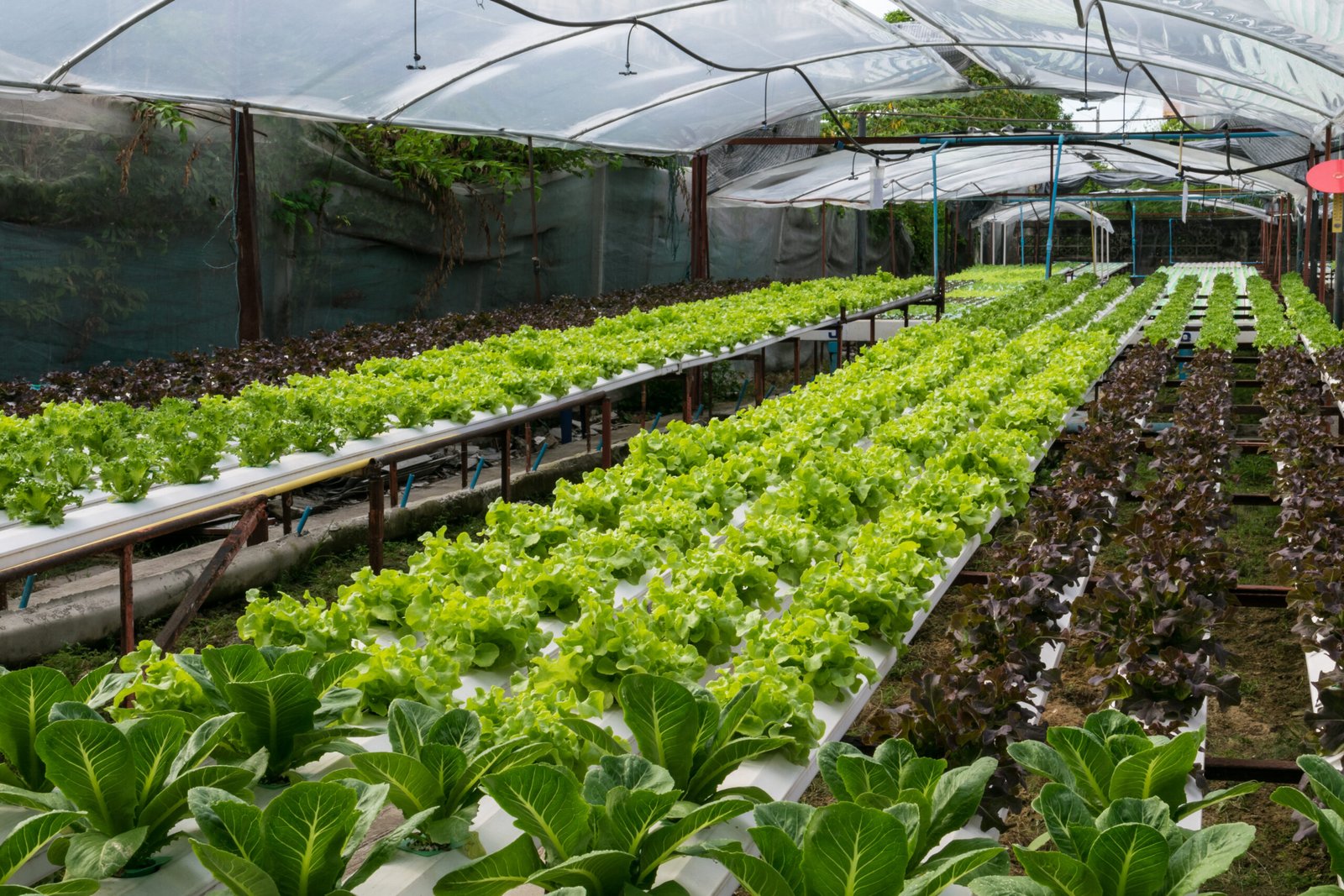Introduction
In the dynamic landscape of agriculture, hydroponic farming emerges as a revolutionary approach, challenging traditional soil-based cultivation. This soil-less method, known for its efficiency and sustainability, is transforming the way we grow crops. In this comprehensive guide, we delve into the intricacies of hydroponic farming, exploring its techniques, benefits, and the potential it holds for the future of agriculture.
* Understanding Hydroponics: The Soil-Less Revolution
⚫ What is Hydroponic Farming?
Hydroponics is a method of cultivating plants without soil, utilizing nutrient-rich water solutions to deliver essential minerals directly to plant roots.
⚫ Key Components of Hydroponic Systems:
Growing Mediums: From perlite and vermiculite to coco coir, explore the diverse mediums used to support plant roots in hydroponic systems.
Nutrient Solutions: Understand the essential role of nutrient solutions in providing plants with the elements they need for growth.
* Types of Hydroponic Systems: Diving into Diversity
⚫ Nutrient Film Technique (NFT):
Plants are grown in a thin film of nutrient-rich water, promoting efficient nutrient absorption.
⚫ Deep Water Culture (DWC):
Roots are submerged in nutrient solutions, fostering rapid and robust plant growth.
⚫ Aeroponics:
Nutrient-rich mist is sprayed directly onto plant roots, maximizing oxygen exposure.
⚫ Drip Systems:
Nutrient solutions are delivered directly to plant bases through a network of tubes and emitters.
* Advantages of Hydroponic Farming: Greening the Future
⚫ Increased Growth Rates:
Hydroponic systems accelerate plant growth, providing an efficient environment for nutrient absorption.
⚫ Water Conservation:
Significantly reduces water usage compared to traditional farming, addressing global water scarcity concerns.
⚫ Space Efficiency:
Vertical hydroponic setups optimize space, making it ideal for urban agriculture and limited land availability.
⚫ Year-Round Cultivation:
Controlled environments allow for continuous crop production irrespective of external weather conditions.
* Challenges and Solutions: Navigating the Hydroponic Landscape
⚫ Managing Nutrient Levels:
Precision in nutrient monitoring and adjustments is key to successful hydroponic farming.
⚫ Disease Prevention:
Implementing proper hygiene practices helps prevent the spread of diseases in closed hydroponic systems.
⚫ Initial Investment:
long-term savings in water, nutrition,labour,prodiction and land make hydroponics financially viable.
* Applications Beyond Traditional Crops: Exploring Diversity
⚫ Hydroponics and Urban Agriculture:
Revolutionizing city farming with space-efficient, high-yield hydroponic setups.
⚫ Specialty Crop Cultivation:
From herbs,spices & Vine Crops to exotic fruits hydroponics accommodates the growth of diverse crops.
*Future Trends: Paving the Way Forward
⚫ Integration of Technology:
Smart farming technologies to maintain controlled environment enhance precision and control in hydroponic systems.
⚫ Sustainable Practices:
Continued emphasis on sustainability with renewable energy sources and nutrient cycles.
⚫ Hybrid Farming Systems:
Exploring combinations of hydroponics with traditional farming methods for optimized yields.
* Conclusion : Nurturing Tomorrow’s Harvest Hydroponic farming, with its dynamic systems and sustainable practices, stands at the forefront of agricultural innovation. As technology continues to advance and awareness grows, hydroponics holds immense promise for addressing food security challenges and redefining the future of farming. Whether you’re a seasoned agriculturalist or a curious enthusiast, the world of hydroponics invites exploration, experimentation, and the cultivation of a greener, more efficient tomorrow.



0 Comments